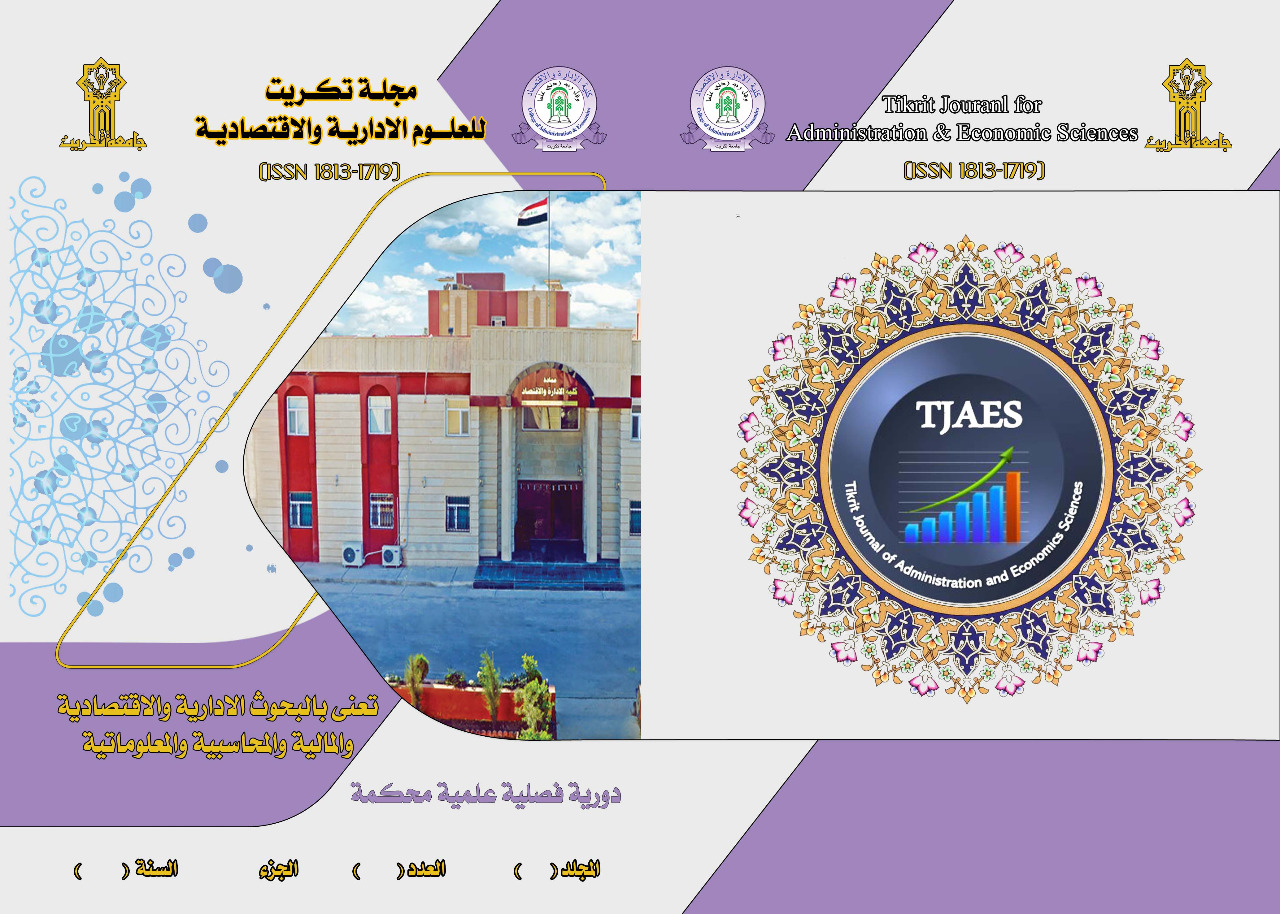Abstract
The research aimed to test the accounting disclosure level of Iraqi Islamic banks in accordance with Islamic accounting standards and its impact on credit risk, after obligating Iraqi Islamic banks to apply the standards under the Islamic Banking Law No. (43) of 2015. The research sample consisted of (6) Islamic banks in order to achieve the objectives of the research, an indicator for disclosure was prepared in light of 139 requirements of the Islamic Financial Accounting Standards issued by (AAOIFI) and in force during the research period (2015-2019), and by using an indicator of credit risks, which is (overdue debt ÷ total cash credit (Islamic finance)), the results were reached, the most prominent of which were: There is a statistically reversible correlation between the level of accounting disclosure in accordance with Islamic financial accounting standards and credit risk in banks, the research sample, and there is an negative (adverse) effect for accounting disclosure in accordance with Islamic financial accounting standards on credit risk in banks, the research sample, meaning the greater the accounting disclosure, the lower the credit risk, In light of the conclusions, many recommendations were proposed, the most important of which is that it is necessary for Islamic banks, the research sample, to develop the level of disclosure of banking risks in general , to meet the needs of users of financial statements of information necessary to rationalize financial decisions.
Keywords
accounting disclosure
credit risk
Iraqi Islamic banks.
Islamic accounting standards
Abstract
هدف البحث الى اختبار تأثير مستوى الافصاح المحاسبي وفقا لمعايير المحاسبة الإسلامية في مخاطر الائتمان، وذلك بعد ان إلزام المصارف العراقية الإسلامية بتطبيق المعايير الإسلامية بموجب صدور قانون المصارف الإسلامية رقم (43) لسنة 2015. وقد تمثلت عينة البحث من (6) مصارف اسلامية ولتحقيق اهداف البحث تم اعداد مؤشر للإفصاح في ضوء 139 متطلب لمعايير المحاسبة المالية الإسلامية الصادرة عن (AAOIFI) والنافذة خـلال فتـرة البحـث (2015-2019)، وباستخدام مؤشر للمخاطر الائتمانية وهي (ديون متأخرة التسديد ÷ اجمالي الائتمان النقدي "تمويلات إسلامية")، تم التوصل الى النتائج كان ابرزها: هناك علاقة عكسية ذات دلالة احصائية بين مستوى الافصاح المحاسبي وفقا لمعايير المحاسبة المالية الإسلامية ومخاطر الائتمان في المصارف عينة البحث، وهناك تأثير سلبي (عكسي) للإفصاح المحاسبي وفقا لمعايير المحاسبة المالية الإسلامية على مخاطر الائتمان في المصارف عينة البحث بمعنى كلما زاد الافصاح المحاسبي انخفضت مخاطر الائتمان، وفي ضوء الاستنتاجات تم اقتراح العديد من التوصيات من اهمها من الضروري ان تقوم المصارف الإسلامية عينة البحث بتطوير مستوى الافصاح عن المخاطر المصرفية بوجه عام لتلبية احتياجات مستخدمي القوائم المالية من المعلومات اللازمة لترشيد القرارات المالية.
Keywords
الافصاح المحاسبي، المخاطر الائتمانية، معايير المحاسبة الإسلامية، المصارف العراقية الإسلامية.
